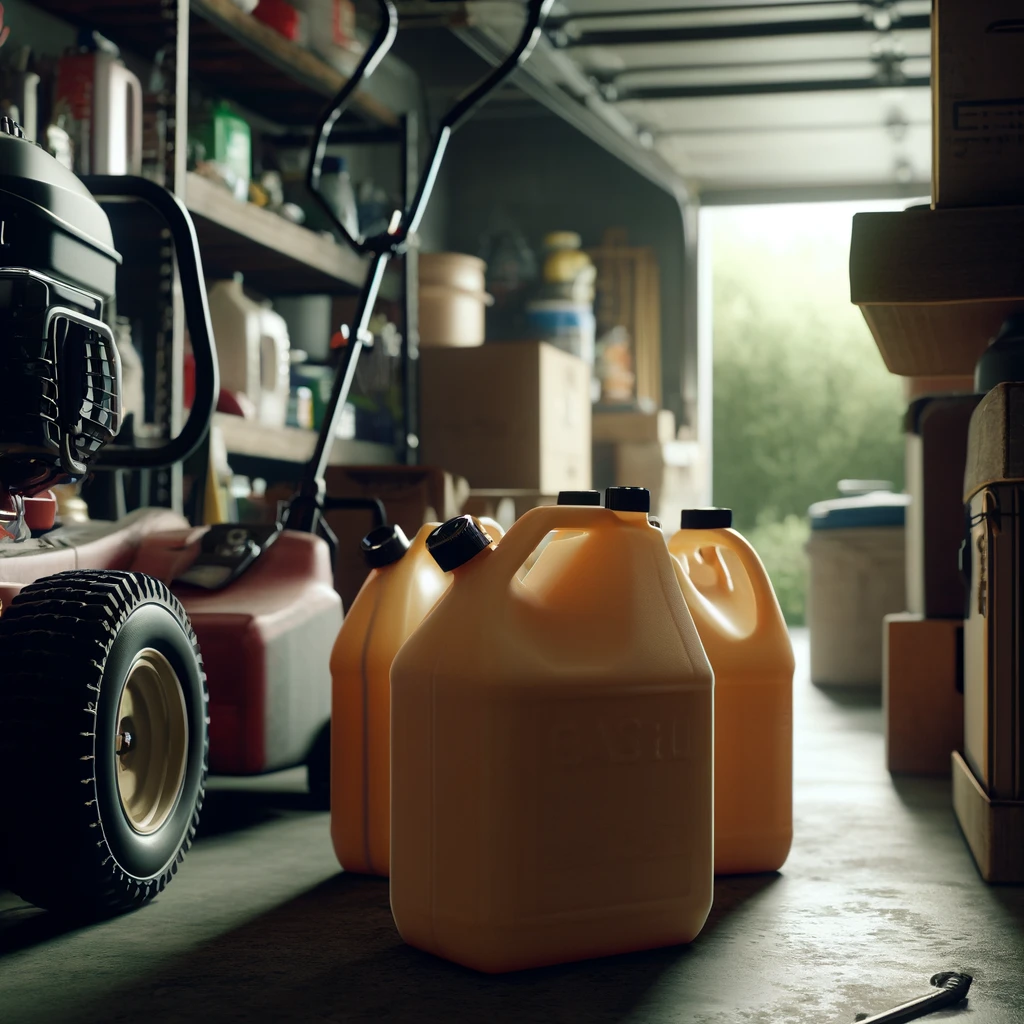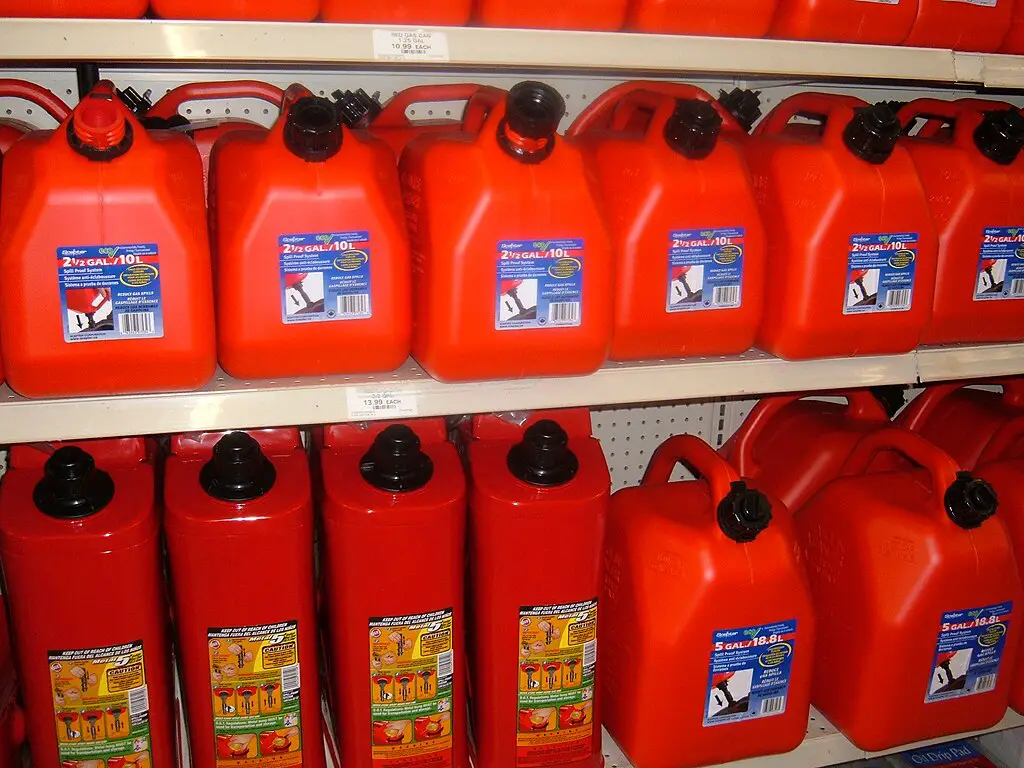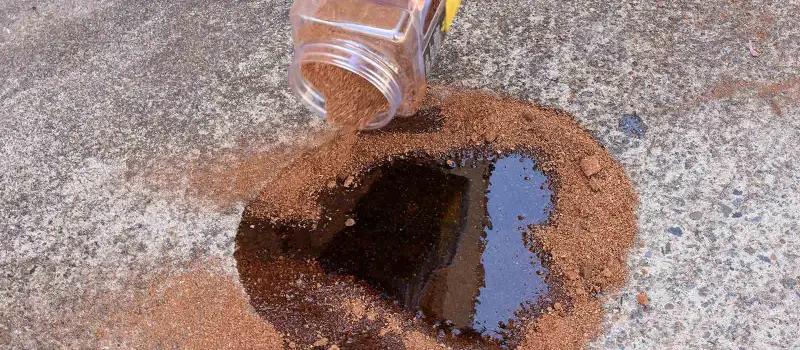
Walking into your garage only to be greeted by the strong smell of gasoline can be both unpleasant and alarming. Not only is the odor bothersome, but it can also signal potential dangers lurking in your storage or parking space. Whether it’s a subtle whiff or an overpowering stench, understanding why your garage smells like gas is the first step to solving this issue safely and effectively.
This article will guide you through identifying various common sources of gasoline odors in your garage, from everyday vehicles to less obvious culprits like stored chemicals. We’ll also cover how to handle these odors safely, using both household remedies and proper storage techniques to keep your space safe and smell-free. Additionally, we will discuss when it’s crucial to call in professionals to deal with hazardous situations.
Key Takeaways:
- Identify the Source: Learn about different potential sources of gasoline smells in your garage, including vehicles and household chemicals.
- Safe Storage Tips: Get practical advice on how to store gasoline and chemicals safely to prevent leaks and odors.
- Odor Removal Strategies: Discover multiple methods to remove unwanted gasoline odors from your garage.
- Professional Help: Understand when and why to seek professional help if the situation seems beyond simple home remedies.
- Preventive Measures: Find out how regular maintenance and routine checks can help you avoid future issues with gasoline odors.
By the end of this article, you’ll be equipped with the knowledge to not only tackle the current smell but also prevent future occurrences, ensuring your garage remains a safe and pleasant part of your home.
Why Your Garage Smells Like Gas: Common Causes
One of the first steps in addressing the issue of a gasoline smell in your garage is to pinpoint where it’s coming from. There are several common sources that might be the culprit, and understanding each can help you quickly and effectively find a solution.
Vehicles
Often, the most obvious source of gasoline odors in the garage are the vehicles themselves. Cars, motorcycles, and other motorized equipment can sometimes leak fuel. This can be due to a loose or damaged gas cap, problems with the fuel tank, or issues with the fuel lines. Even a small drip can produce a noticeable smell, especially in an enclosed space like a garage. Regularly check your vehicles for any signs of leaks, and make sure gas caps are secure and in good condition.
Gas-Powered Equipment
Besides vehicles, other equipment that uses gasoline can also be responsible for odors. This includes items like lawnmowers, leaf blowers, and chainsaws. These tools often have small fuel tanks and can leak if not properly maintained or if they are stored improperly. After use, make sure these tools are emptied of fuel or check that their tanks are tightly sealed before storing them.
Stored Chemicals
Garages often serve as a storage area for various household chemicals, some of which can emit strong odors that might be mistaken for gasoline. Paints, solvents, and cleaners contain volatile organic compounds (VOCs) that can fill your garage with pungent smells. Make sure all chemical containers are tightly sealed and stored in a well-ventilated area to minimize odors.
Poor Ventilation
Sometimes, the issue isn’t a leak but rather poor ventilation in the garage itself. Without adequate airflow, any fumes that are present—whether from gasoline, chemicals, or even garden tools—can become concentrated and overpowering. Improving the ventilation in your garage can help dissipate not only gasoline odors but other harsh smells as well.
Safe Storage and Handling of Gasoline and Chemicals in the Garage
Storing gasoline and chemicals safely in your garage is crucial for both your safety and the environment. Proper storage practices not only prevent leaks and spills but also reduce the risk of fire hazards and minimize unpleasant odors. Here are some essential tips on how to store gasoline and chemicals correctly:
Use Proper Containers

Always use containers designed specifically for gasoline storage. These containers are built to withstand the chemicals’ properties and prevent leakage. For other chemicals like solvents and paints, use their original containers with secure lids. This helps ensure that the containers are compatible with the contents and are less likely to degrade over time.
Keep Containers Sealed and Upright
Ensure that all containers are tightly sealed and stored upright. This prevents any accidental spills or evaporation, which can lead to increased odors and potential health risks. Regularly check the seals and replace any containers that show signs of wear or damage.
Store in a Cool, Dry Place
Store gasoline and chemical containers in a cool, dry place away from any heat sources such as direct sunlight, space heaters, or electrical equipment. Heat can cause expansion and increase the pressure inside containers, potentially leading to leaks or bursts.
Limit Quantities
Only store the amount of gasoline and chemicals that you realistically need. Reducing the volume of these substances in your garage decreases the risk of accidents and reduces the strength of odors.
Ventilation is Key
Good ventilation is essential in areas where you store gasoline and chemicals. It helps to disperse any vapors that might escape from containers, keeping the air in your garage safer to breathe and reducing the buildup of flammable gases.
By following these simple guidelines for the safe storage and handling of gasoline and chemicals, you can protect your health, your home, and the environment. Keeping these substances well-contained and correctly stored is the best way to ensure your garage remains a safe and clean space.
Tips to Freshen Up Your Garage: Removing Unwanted Smells
If your garage has started to pick up a persistent bad smell, whether from gasoline, dampness, or just everyday grime, there are several effective ways to freshen it up. Removing unwanted smells can make your garage a more pleasant and healthier space. Here’s how to tackle those stubborn odors:
Clean Spills Immediately

The first step in odor removal is to address any spills as soon as they happen. Whether it’s gasoline, oil, or other chemicals, use absorbent materials like cat litter or sand to soak up the liquid. Then, sweep it up and dispose of it properly. Cleaning spills immediately prevents the odors from setting into the floor and becoming harder to remove.
Use Natural Odor Absorbers
Several household items are excellent at absorbing odors and can be used effectively in your garage. For instance:
- Baking Soda: Sprinkle baking soda on the floors and let it sit for a few hours before sweeping or vacuuming it up. This can neutralize acid-based odors.
- Activated Charcoal: Place bowls of activated charcoal around the garage to absorb stubborn smells. Replace the charcoal every few months for best results.
- White Vinegar: Wipe down surfaces with white vinegar. It’s a natural deodorizer that can help remove lingering smells.
Improve Ventilation
Increasing airflow in your garage is key to removing odors. If your garage has windows, keep them open when the weather permits. You can also use fans to help circulate the air and push out stale, smelly air.
Regular Cleaning
Keeping your garage clean is essential for controlling odors. Regularly sweep the floors and wipe down surfaces. If your garage floor is concrete, consider sealing it to make it more resistant to spills and easier to clean.
Use Odor-Neutralizing Products
There are various commercial products designed to neutralize odors, not just cover them up. These can be especially helpful for persistent smells that natural remedies can’t tackle. Look for odor-neutralizing sprays or gels designed for use in large spaces like garages.
By following these tips, you can effectively remove and manage unpleasant odors in your garage. Keeping it clean, well-ventilated, and using the right products will ensure your garage remains fresh and welcoming.
When to Call a Professional: Recognizing Serious Risks
While many garage odors can be handled with do-it-yourself methods, there are times when it’s crucial to call in a professional. Knowing when to seek help can prevent potential hazards and ensure your safety. Here are some signs that it’s time to contact a professional:
Persistent Strong Odors
If you’ve tried multiple methods to remove a gasoline or chemical odor and it persists, this could indicate a more serious issue, such as a hidden leak. Professionals have the tools and expertise to diagnose and fix these problems effectively.
Signs of Mold or Mildew
If you notice signs of mold or mildew, which can have a musty smell, it’s important to call in a professional. Mold in your garage can spread to other parts of your home and pose health risks, especially if you have allergies or asthma.
Health Symptoms
If you or your family members start experiencing symptoms like headaches, dizziness, or respiratory issues when spending time in the garage, this could be a sign of toxic fumes or poor air quality. Professionals can assess the air in your garage and determine the necessary steps to make it safe.
Flammable Materials
If you suspect that the odors in your garage are coming from flammable materials, it’s essential to handle this situation carefully. Professionals can safely identify and remove hazardous materials and ensure that your garage meets safety standards.
Calling a professional not only helps resolve current issues but also prevents future problems. By recognizing these serious risks and acting promptly, you can maintain a safe and healthy environment in your garage.
Preventing Future Odors: Maintenance and Routine Checks
To keep your garage smelling fresh and avoid future odor problems, regular maintenance and routine checks are key. By staying proactive, you can catch and address potential issues before they develop into serious problems. Here’s what you should focus on to maintain a clean and odor-free garage:
Regular Vehicle Inspections
Make it a habit to check your vehicles for leaks regularly. Pay special attention to the fuel line, tank, and engine area. Any signs of leakage should be repaired promptly to prevent gasoline odors from permeating your garage.
Tool and Equipment Upkeep
Gas-powered tools like lawnmowers and leaf blowers can also be sources of gas smells if they’re not well-maintained. Ensure that these items are emptied of fuel when not in use for extended periods, and check them regularly for leaks. Proper maintenance not only prevents odors but also extends the life of your equipment.
Proper Storage Practices
Store gasoline, solvents, and other chemicals in well-sealed containers specifically designed for their storage. Keep these containers in a cool, dry area of the garage and away from any sources of heat or sparks. This helps minimize evaporation and leakage, which can lead to odors.
Clean Regularly
A clean garage is less likely to develop odor issues. Sweep and mop the floors regularly to remove any spills, dirt, and debris. Consider using a concrete sealer on your garage floor to make it more resistant to stains and easier to clean.
Ventilation Check
Ensure your garage is well-ventilated. Check and clean any existing ventilation systems and consider adding additional airflow options if necessary, such as fans or vents. Proper airflow helps disperse any potential fumes and keeps the air in your garage fresh.
By implementing these maintenance and routine check practices, you can significantly reduce the risk of developing odor problems in your garage. Regular upkeep not only keeps your space smelling fresh but also creates a safer environment for storing vehicles and chemicals.
Health Implications of Gas Exposure
Exposure to gas fumes is not just unpleasant—it can also be harmful to your health. Understanding the risks associated with breathing in these fumes is important for keeping you and your family safe.
Short-term Effects
Short-term exposure to gasoline vapors can cause immediate symptoms. These might include headaches, dizziness, nausea, and irritation of the eyes, nose, and throat. If you ever feel these symptoms while in your garage, it’s important to get fresh air right away.
Long-term Effects
Long-term exposure to gas fumes can lead to more serious health issues. It can affect the nervous system, leading to problems like memory loss and reduced coordination. Extended exposure can also harm your kidneys and liver. For those with asthma or other respiratory conditions, gasoline fumes can make these conditions worse.
Safety Tips
To protect yourself and your family from the harmful effects of gasoline exposure:
- Always keep your garage well-ventilated.
- Use proper containers for storing gasoline and ensure they are sealed and intact.
- Handle gasoline and other chemicals with care, preferably using gloves and masks if needed.
By being aware of the health risks and taking these precautions, you can help ensure your garage is a safe environment. Remember, if the gasoline smell in your garage is strong and persistent, it’s wise to seek professional help to resolve the issue safely.
Conclusion
In conclusion, addressing and preventing gasoline smells in your garage is crucial for maintaining a safe and pleasant home environment. By identifying the sources of odors—from leaks in vehicles and gas-powered equipment to improperly stored chemicals—and implementing effective solutions like proper storage, regular cleaning, and enhanced ventilation, you can significantly reduce the risk of unpleasant and harmful fumes. Remember to use natural and commercial products wisely to neutralize odors and keep your garage fresh.
Additionally, recognizing when a situation requires professional intervention is key to ensuring your safety and the longevity of your garage. Regular maintenance checks and adherence to safety guidelines will not only help you manage current odors but also prevent future problems. By staying informed and proactive, you can ensure that your garage remains a clean, odor-free, and functional space in your home.
FAQ: Why My Garage Smells Like Gas
1. What are the most common reasons my garage smells like gas?
- The most typical sources include leaks from vehicles, gas-powered lawn equipment, and improperly stored gasoline or chemicals. Poor ventilation can also cause these smells to become more concentrated and noticeable.
2. How can I safely store gasoline in my garage?
- Use approved containers designed for gasoline storage, ensure they are tightly sealed, and store them in a cool, dry place away from direct sunlight or heat sources to prevent evaporation and leaks.
3. What should I do if I smell gasoline in my garage?
- Immediately ventilate the area to disperse fumes. Check for leaks from your vehicle or storage containers. If the smell persists or you find a leak, clean it up safely using absorbents and consult a professional if necessary.
4. Are gasoline fumes in my garage dangerous?
- Yes, gasoline fumes can be harmful. They pose a fire risk and can cause health issues like dizziness, nausea, and respiratory problems. Long-term exposure can lead to more serious health issues.
5. How can I remove gasoline smells from my garage?
- Absorb spills immediately with materials like cat litter or sand. Clean the area with effective cleaners like baking soda or white vinegar. Ensure good ventilation, and consider using air purifiers or odor-neutralizing products.
6. When should I call a professional for a gasoline smell in my garage?
- If the smell persists despite your efforts to clean and ventilate, or if you notice continuous leaks from vehicles or containers, it’s time to call a professional. Also, seek professional help if you detect signs of mold or experience health symptoms when in the garage.
7. How often should I inspect my garage to prevent gasoline smells?
- Regularly check at least once a month for any signs of leaks from your vehicles and storage containers. Also, inspect and maintain any gas-powered equipment stored in the garage.
8. Can poor ventilation alone cause my garage to smell like gas?
- Poor ventilation can exacerbate the smell by allowing gasoline fumes to accumulate. Improving airflow with fans or vents can help reduce the concentration of these fumes.
Source Links
https://www.epa.gov/gasoline-standards
https://www.cdc.gov/nceh/hsb/chemicals/default.htm
https://www.healthline.com/health/gasoline

